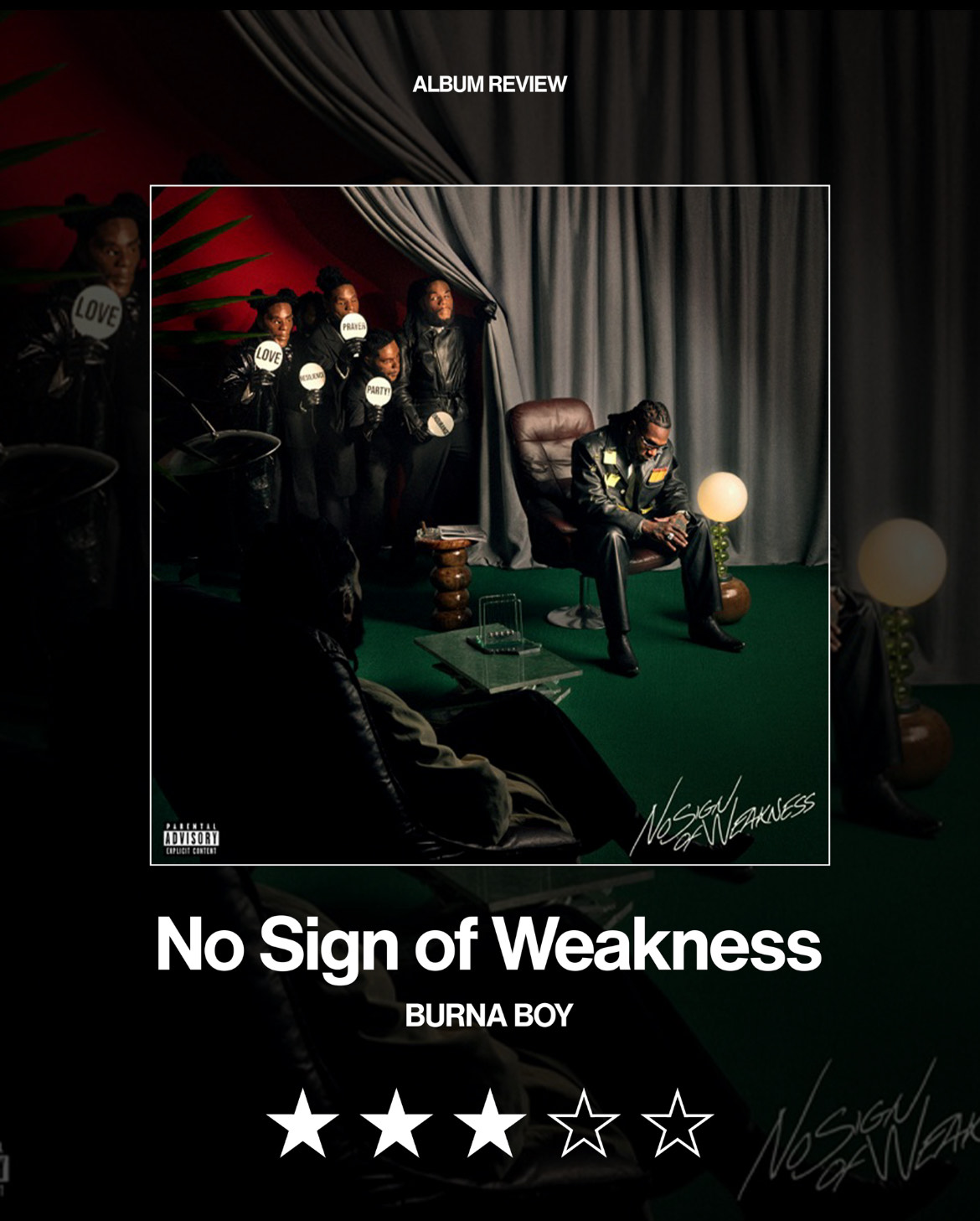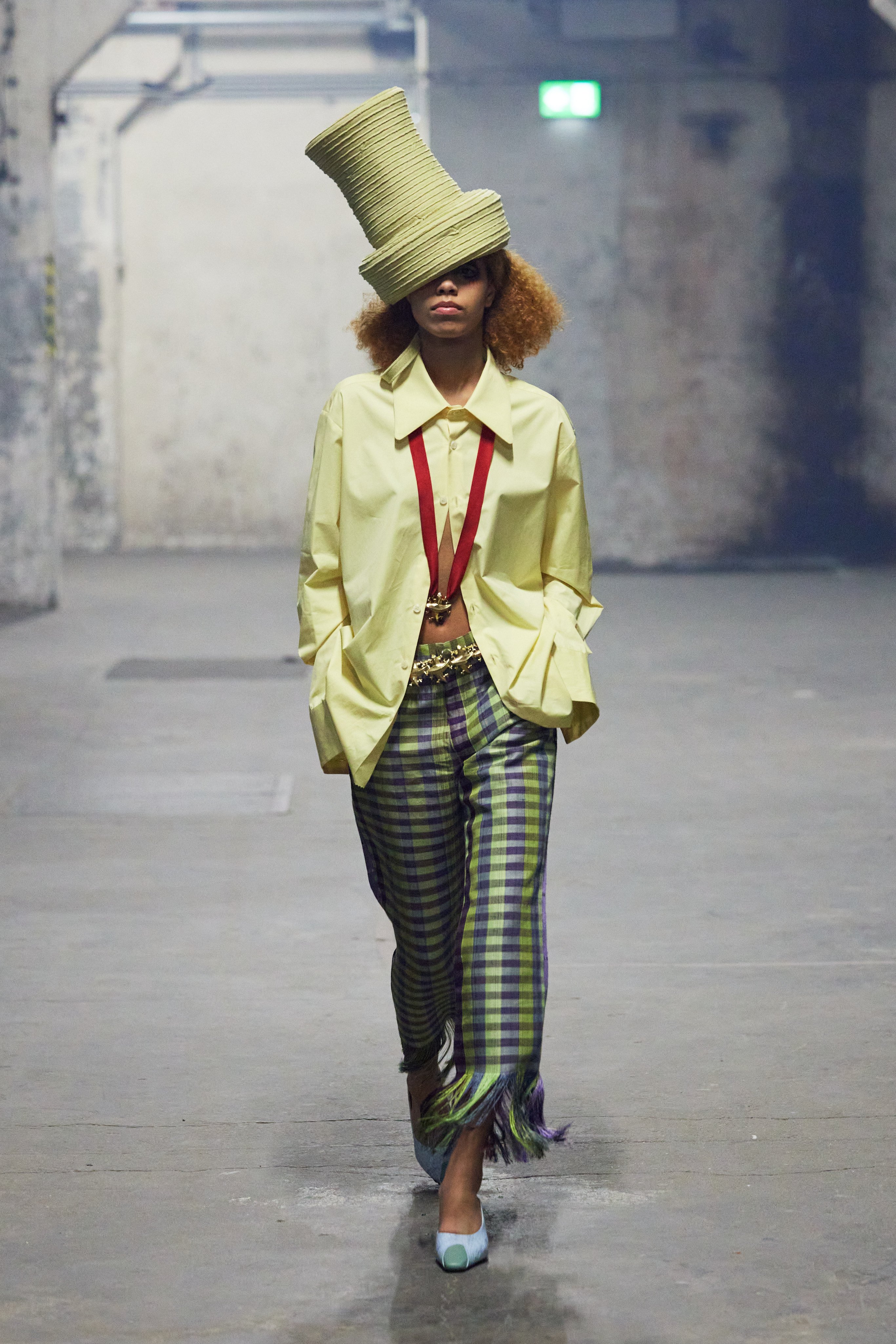“Living an Impact For Eternity.” Who christens their album, their debut album especially, with this sequence of words? A title so grand in its ambition and monomaniacal in its intentions. Running your eyes over these letters, you can almost see them jump off the page, beckoning at you to grapple with their assertion. “L.I.F.E—Living an Impact For Eternity,” is the title of BurnaBoy’s debut album, the project in which he first introduced himself to us, staking out a reputation as a wily troubadour with a genius for fusing disparate sounds into a compelling new whole. All his albums since then, following this template, have attempted, with varying degrees of success, to enact a persuasive case for a subject he tackles.
African Giant, his fourth album, is in a sense a sharp rebuttal to what he—BurnaBoy—perceived as a slight from Coachella and finds him grappling with far-reaching impacts of colonialism on Africa, especially his home country Nigeria. Twice as Tall, like its predecessor, is also, largely, a rejoinder. Here, however, he trains his gaze on his 2020 Grammy loss—in the opening track he alludes to a strong desire to level up—and the rest of the album finds him chest thumping, exulting his musical chops, and generally interrogating the narrative, his narrative, of rising above from the ashes, forging something beautiful, something transcendent, from the rubble of his pain.
No Sign of Weakness, the title of his eighth studio album, is characteristically grand, pointed, and brazen. It’s a title that either commands deference or stirs up criticism. But to whom or what is he responding? Are this title and songs ensconced in it a reminder to himself? Is it aimed at his antagonists? Or is it a mix of both? Empty Chairs, whose snippet was the earliest portent of the album, provides us with clues to parse his intentions with this album. Over a soaring beat that could pass as a nation’s anthem or an accompaniment to a motivational speech, BurnaBoy intones: “My enemies are no longer on the streets, or the roads/ Now they’re on the internet of the blogs/ And in my sold-out shows looking for empty chairs.” It’s, at this point, expedient to pause and consider the import of this lyric.
No Panic—a high octane number in which drums rumble and a kinetic melody loops as-infinitum, evoking the sense of a shaman working a crowd into a righteous frenzy using powerful music—starts the album. “Dem go whine you but no panic,” BurnaBoy sings with vim and urgency. The phrase is a neologism from Nigerian pidgin which essentially calls for calm and composure amid a precarious atmosphere. It’s a perfect start to an album that aims to dispel allusions of weakness. Notably, it’s his first album opener, in his entire career, which doesn’t open on a somber note. In the next song, the titular No Sign of Weakness, a disembodied voice delivers a monologue on weakness’s insidious nature, BurnaBoy quickly follows with a supremely cavalier verse: “Ema lo fo bi tumbler…,” which literally translates to “Don’t break like a tumbler.” The Yoruba verb “fo,” while directly translating to “break,” could also mean “to lose one’s resolve,” or “to be afraid.”
The album, however, starts to feel incongruous on the next song, Love. It’s one of the best songs on the project but placing a somber song about love’s redemptive power right after two high-octane songs in which he’s focused on antagonizing his enemies makes for a jarring listen. As if to totally frazzle the listener, just after Love which feels like a calm evening of reflection at a lakeside, he thrusts us, brusquely, into the rowdy world of TaTaTa, where he and Travis Scott take turns singing about partying and sex. This motif reverberates through the album: songs feel haphazardly sequenced, and we never quite settle into a vibe before he thrusts us into another. The result is a bumpy listen and an album that veers irredeemably from its thematic anchor. By the time you make it through to the end, you might have culled a selection of songs that you gravitate towards but, you’ll probably feel like you just survived a wonky rollercoaster, your clothes thoroughly disheveled from the chaos, and your hair standing on it edges out of pure shock.
.svg)







.png)

